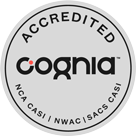You do not have to be a computer expert to take an online course. However, you must be comfortable using a computer and working on the Internet. Most importantly, you must be willing to troubleshoot and attempt to resolve any technical problems that may arise. It is a fact of life that hardware and software breaks down when you least desire or expect it. Successful online students are individuals who recognize this inevitability and plan for it.
To do well in an online course, you should be very comfortable with the following:
- Using a Web browser (Microsoft Edge, Internet Explorer, FireFox). Note that these popular browsers perform differently. It is recommended that you be able to use Firefox and Internet Explorer because occasionally there is a need to use both browsers in order to work effectively on the Web.
- Using a standard word processor (for example, Microsoft Word [or program compatible with Word, WordPad]).
- Reading, composing, and sending email, including sending email with attachments.
- Understanding and respecting netiquette and email etiquette.
- Managing computer files. You will need to save and locate files on your hard drive, shared drives, flash drives, and possibly on the Internet.
- Finding information on the Web by using search engines and bookmarking useful Websites.
You will need all of the technical skills mentioned above in online courses. Lack of technical knowledge can greatly interfere with your success in learning online. If you do not have the above skills, consider taking a computer literacy course prior to enrolling in an online course. There is MUCH more to an online class than just 'surfing the Web'.

